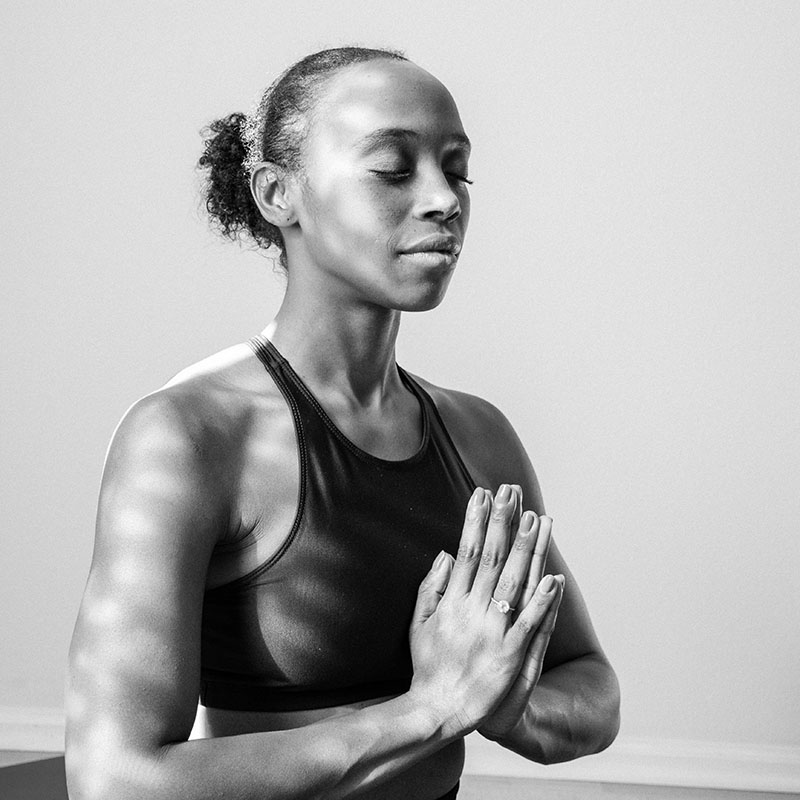What is yoga therapy?

So I’m pretty sure by now you’ve heard all about the beautiful practice that is yoga (and perhaps some of the common misconceptions that float around on it too!) – maybe you’ve even given it a try or swear by its ability to transform the busiest of minds into quiet oases… 💕
It’s a practice that has quite literally changed my life. And it’s a practice that has undoubtedly strengthened my faith and how I lean into inner strength. But yoga therapy is quite a bit different from yoga classes. So if you’ve landed here, you might be wondering what exactly yoga therapy is, how it differs and what it could potentially offer.
Before we dive into a quick comparison, let’s dispel some common myths on yoga.
- Yoga is not for the flexible, it’s for the willing 😊 The flexibility will come!
- Yoga is not for the fit & already toned. ALL body shapes are capable of yoga, it’s so much more than fancy poses & muscle toning! Again, that will come on its own – *if* that’s what you’d like to work towards.
- Yoga is not just about poses. It’s about breath awareness, breathing techniques, the cultivation of peace, mindful movement & living, prayer (again if that’s what you’re aiming for with your practice)… You get the gist. It’s a full being practice – the asana is just what’s easiest to show off on Insta! It’s definitely not representative of everything a yoga practice is, and can add to your life.
So how does a yoga therapy session differ from taking a yoga class?
- Yoga therapy is usually one-on-one OR in a small, focused class that is designed specific to the needs for that class (i.e. yoga therapy for insomnia, Parkinsons, sports rehab, chair yoga for those that don’t have lower leg mobility , yoga for anxiety or post-traumatic stress disorder etc).
- Yoga therapy has a specific therapeutic goal in mind – it’s beyond a general yoga style or practice. Together with your yoga therapist, you will establish what has brought you to therapy, what you are struggling with and what you’d like to achieve. To give you an idea – these are the common concerns my therapy clients arrive with, at a session with me: stress reduction, common muscle strain & sprain, autoimmune conditions, chronic fatigue & pain related conditions, body image concerns, hormonal imbalances & concerns, trauma recovery, burn out, healing of emotional wounds, spiritual difficulties in their Christian faith, amongst many others!
- A yoga therapist is trained to understand your physical and / or emotional concerns and tailor a yoga practice to support your healing journey with those concerns.
- A yoga therapist is first and foremost a yoga teacher, who after considerable practice studies further to become a yoga therapist (most advanced therapy trainings are a minimum of 1 year). They have in-depth anatomy & body systems knowledge, as well as a deep personal meditation, pranayama (breathing) & asana practice. They are brilliant subject matter experts at where the mind, body, heart and soul intersect – and the healing that happens there.
- You may choose to see your yoga therapist on a regular basis, but most yoga therapy is a short – medium term commitment with specific goals in mind. Thereafter you may choose to join a small yoga therapy class focused on your health needs, general yoga practice classes and/or home practice.
As I’m sure you can tell by now, yoga therapy is highly personalised and an incredibly powerful tool to overcome physical and emotional health concerns.
And even more so if your physical concerns have their roots in emotional challenges and wounds. Which most do! 😊 Your yoga therapist is likely to become one of your closest ally’s & a wise guide or mentor that you often return to for insight and personal development. Even yoga therapists have yoga therapists!
Are you looking to give it a try? Pop me a mail here to schedule your first session!

